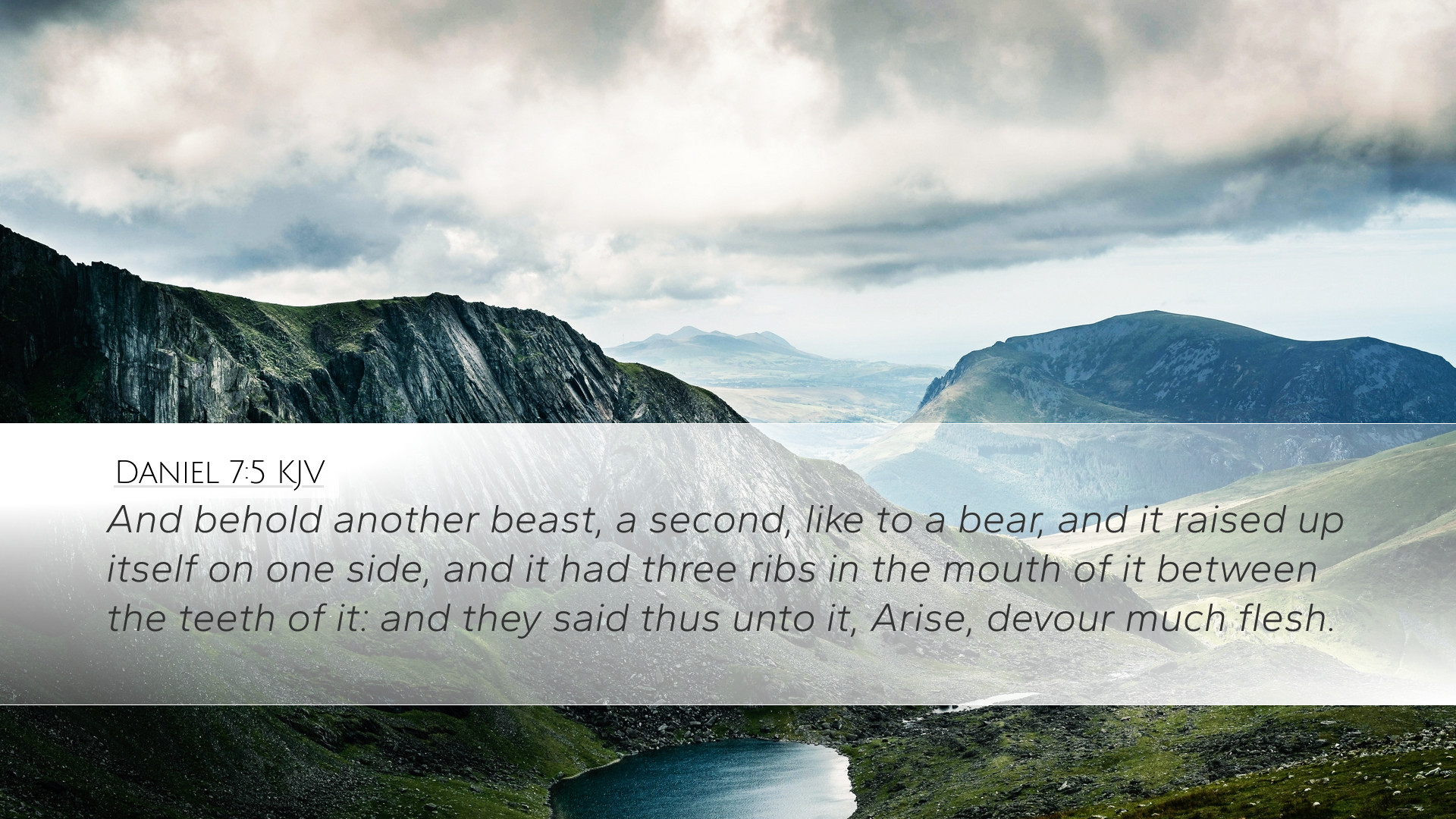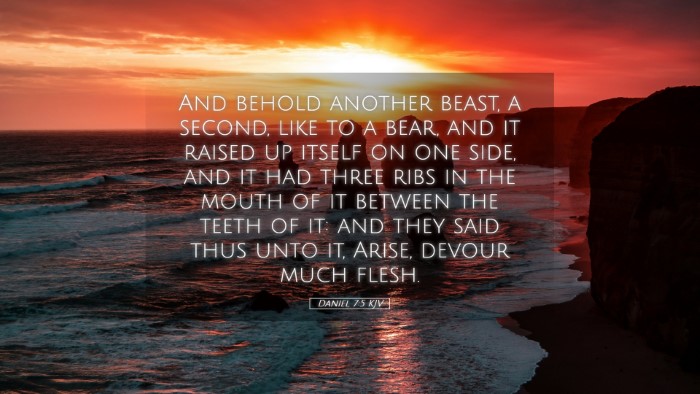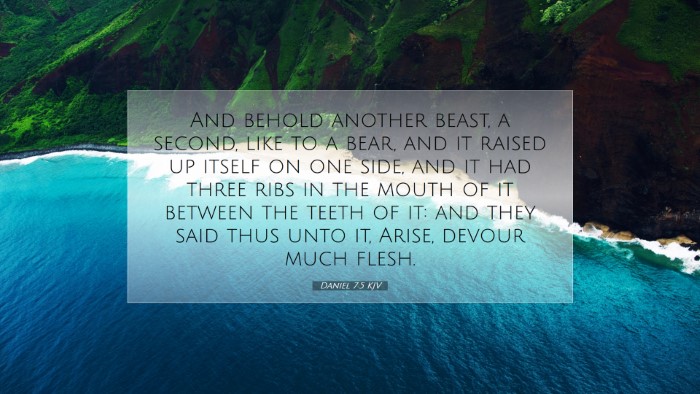Commentary on Daniel 7:5
Daniel 7:5 states, "And behold another beast, a second, like to a bear, and it raised up itself on one side, and it had three ribs in the mouth of it between the teeth of it: and they said thus unto it, Arise, devour much flesh." This verse is rich in imagery and prophetic significance, calling for a detailed exploration of its meanings and implications from various public domain commentaries.
Overview of the Verse
The vision of the four beasts in Daniel is a crucial part of the prophetic narrative depicting the successive empires of the world. The second beast, described as a bear, signifies the Medo-Persian Empire, which succeeded Babylon as a dominant force.
Interpretations from Public Domain Commentaries
Matthew Henry’s Commentary
Symbolism of the Bear: According to Matthew Henry, the bear represents the disproportionate strength and ferocity of the Medo-Persian Empire compared to its predecessor, Babylon. The bear, characterized by its strength and predatory nature, suggests the aggressive expansionism of Persia.
Three Ribs: Henry notes that the three ribs in the bear's mouth symbolize the three principal conquests of this empire: Lydia, Babylon, and Egypt. These ribs indicate the significant territories consumed by the Medo-Persians, illustrating the idea of devouring much flesh, which is indicative of the empire's voracious appetite for conquest.
Albert Barnes’ Notes on the Bible
Distinct Characteristics: Albert Barnes emphasizes that the bear is distinct from the previous lion-like beast, symbolizing a different type of kingdom with its own characteristics. The bear is raised up on one side, which can be interpreted to mean that the Persian part of the empire grew stronger than the Median part, thereby indicating the rise of Persia over Media.
Divine Permission: Barnes argues that the wording of the command to the bear, "Arise, devour much flesh," reflects God's sovereign will in allowing empires to rise and fall as part of His divine plan. It serves as a reminder that despite the seeming chaos of world powers, God remains in control.
Adam Clarke’s Commentary
A Dual Nature: Adam Clarke provides insight into the dual nature of the bear, suggesting that it represents not just brute force but also a cunning strategy in its conquests. The bear's position, raising itself on one side, suggests a powerful stance that demonstrates its might and readiness for battle.
Nations and Their Influence: Clarke also draws attention to the implications of the beast's actions towards nations; it symbolizes an empire that will dominate others and deeply influence their fate. The command to "devour much flesh" signifies the inevitable consequences of imperial ambition and the struggle for power among nations.
Theological Reflections
This verse prompts deep theological reflection on God's providential guidance over history. The rise and fall of kingdoms remind believers of the temporal nature of earthly power and the supremacy of God's eternal kingdom. The image of the consuming bear invites Christians to consider the ethical dimensions of power and conquest in their historical context as well as in contemporary society.
Lessons for Today
- God’s Sovereignty: Understanding that despite the chaos and power struggles in history, God orchestrates the rise and fall of nations.
- Ethics of Power: Reflecting on how nations exert power over others, reminding leaders to seek justice and compassion.
- Hope in Prophecy: Recognizing the fulfillment of prophecy as a testament to God's faithfulness and truth in the ages of man.
Conclusion
Daniel 7:5 serves as a profound reminder of the nature of empires and the complex interplay between divine sovereignty and human ambition. Through the insights of Matthew Henry, Albert Barnes, and Adam Clarke, pastors, students, theologians, and Bible scholars can glean a deeper understanding of this prophetically charged verse and its implications for both ancient and modern readers.


